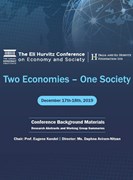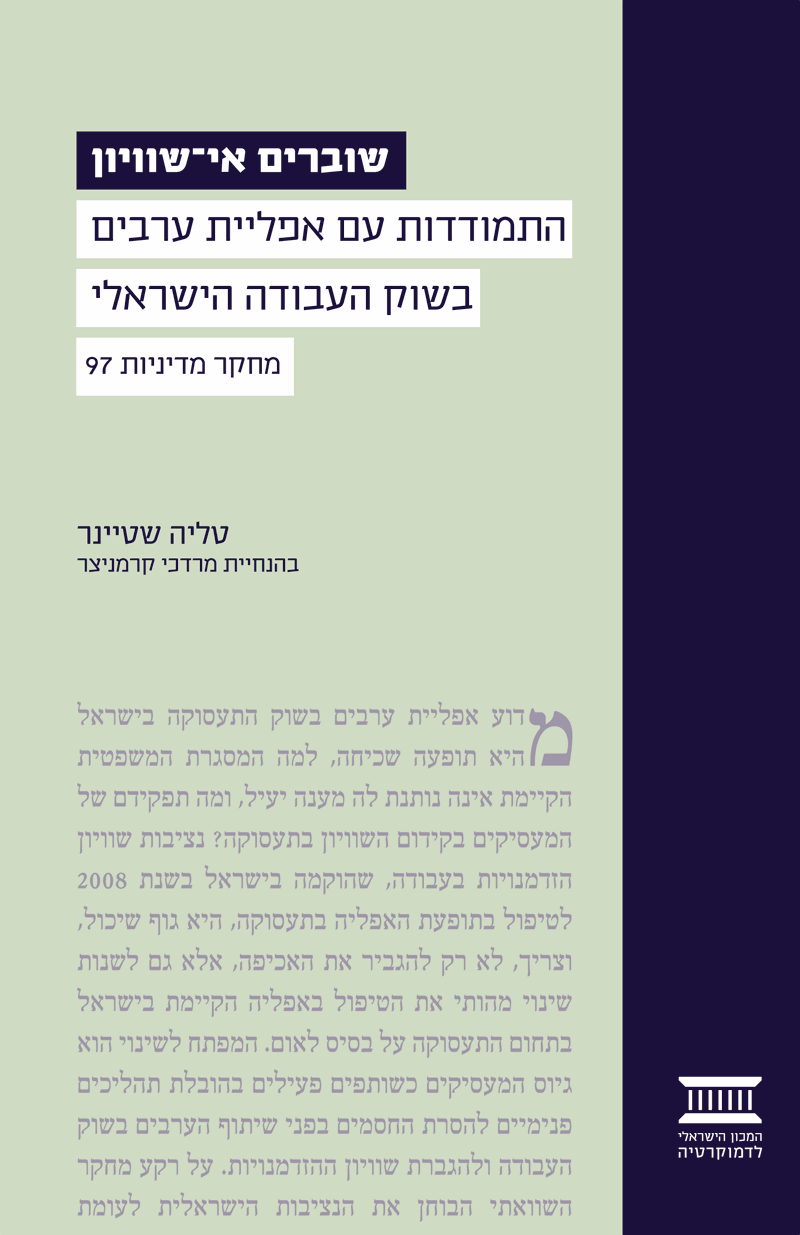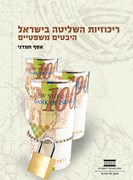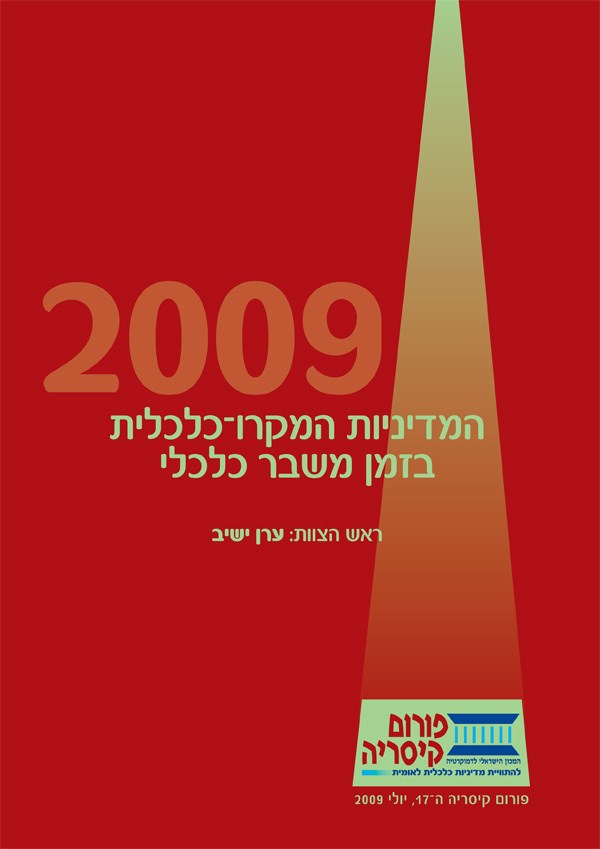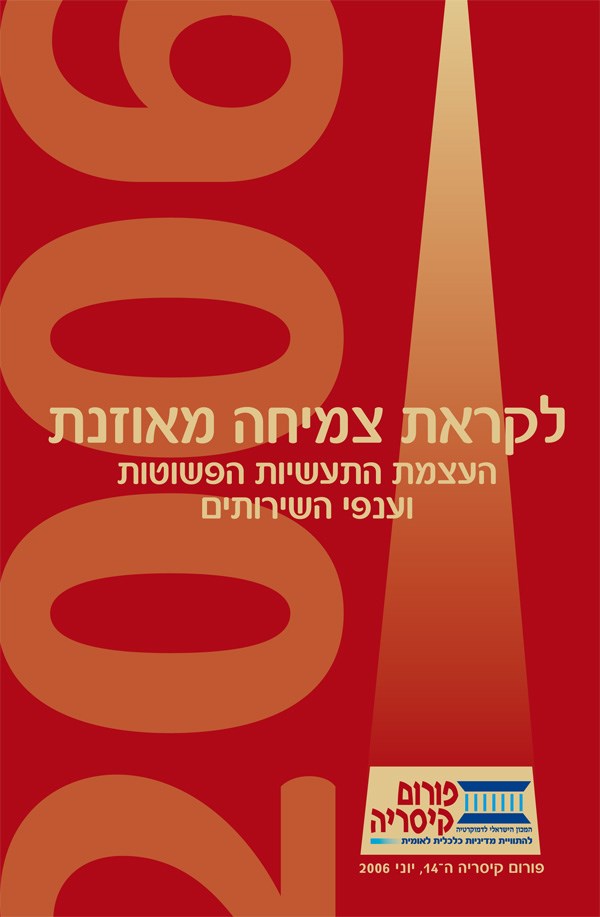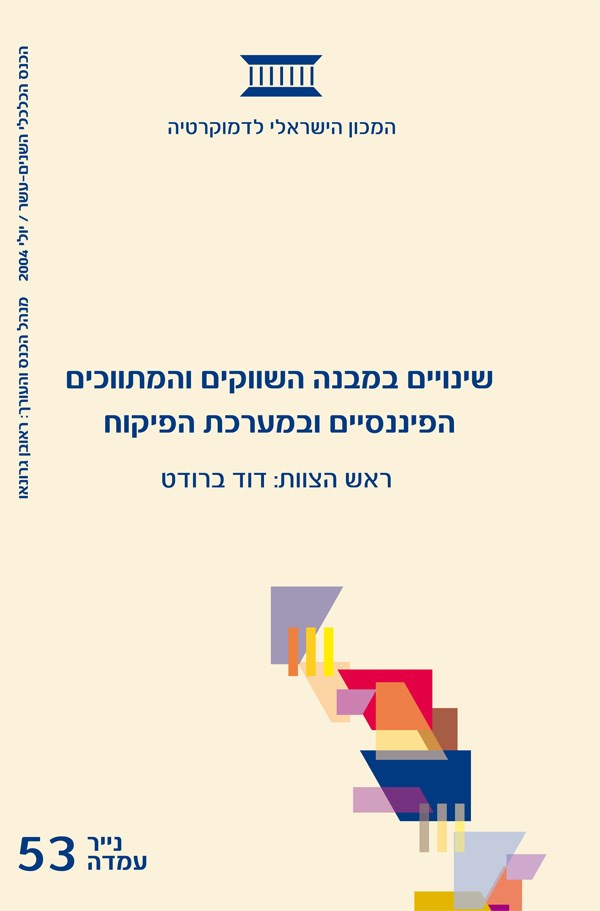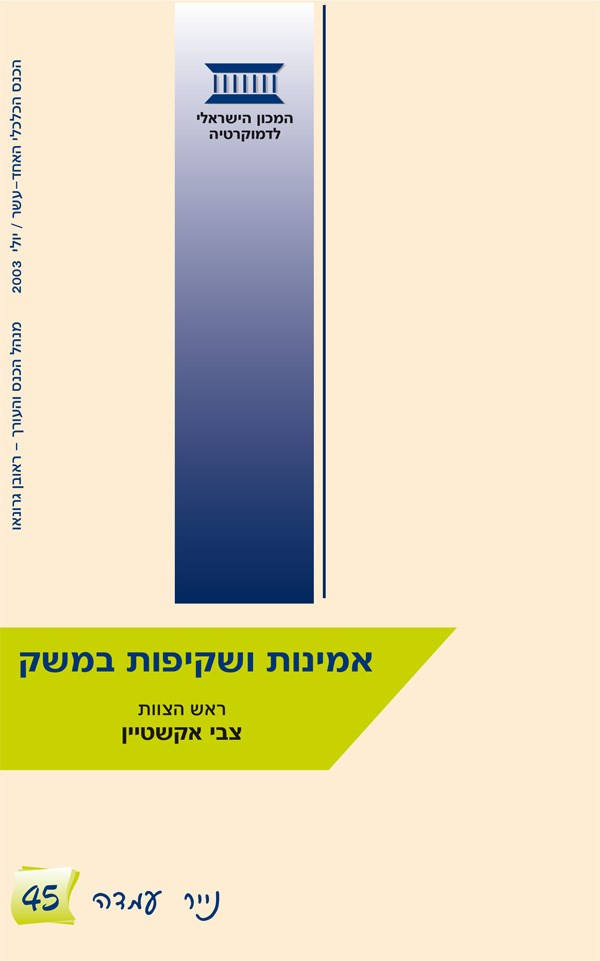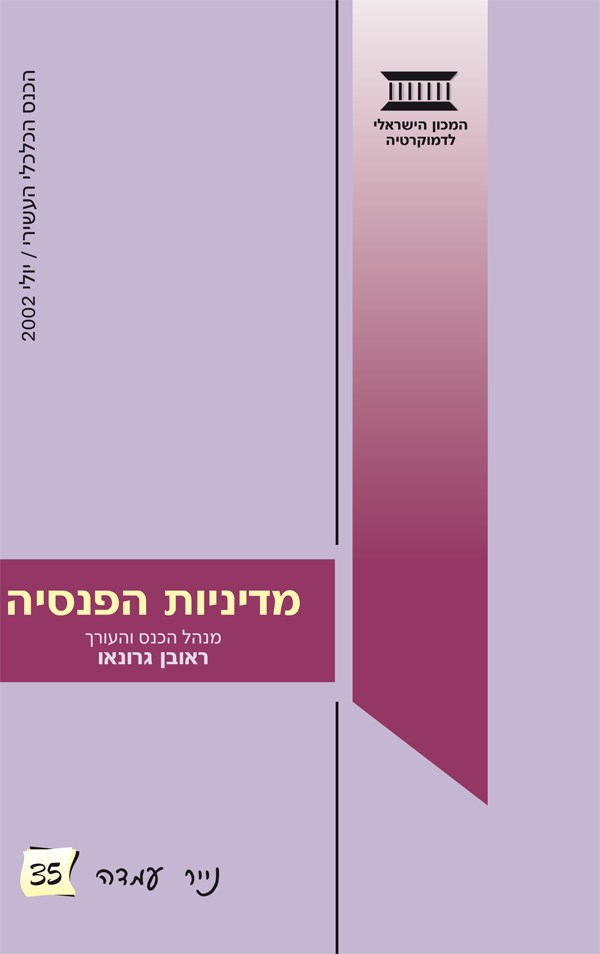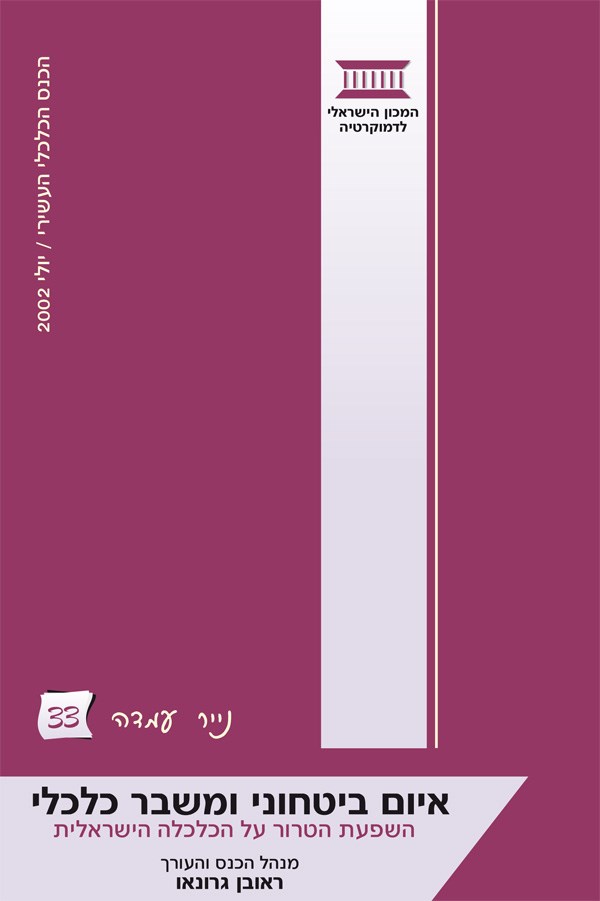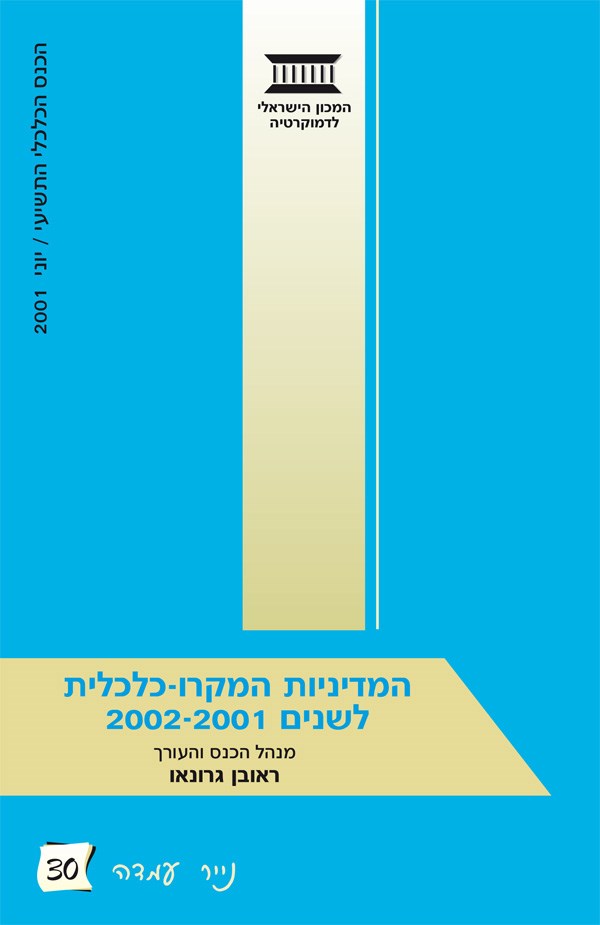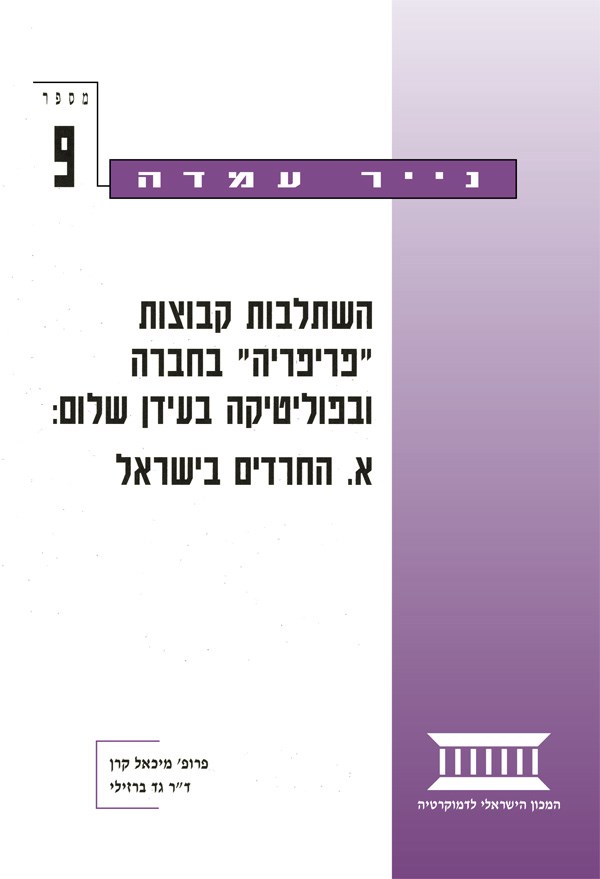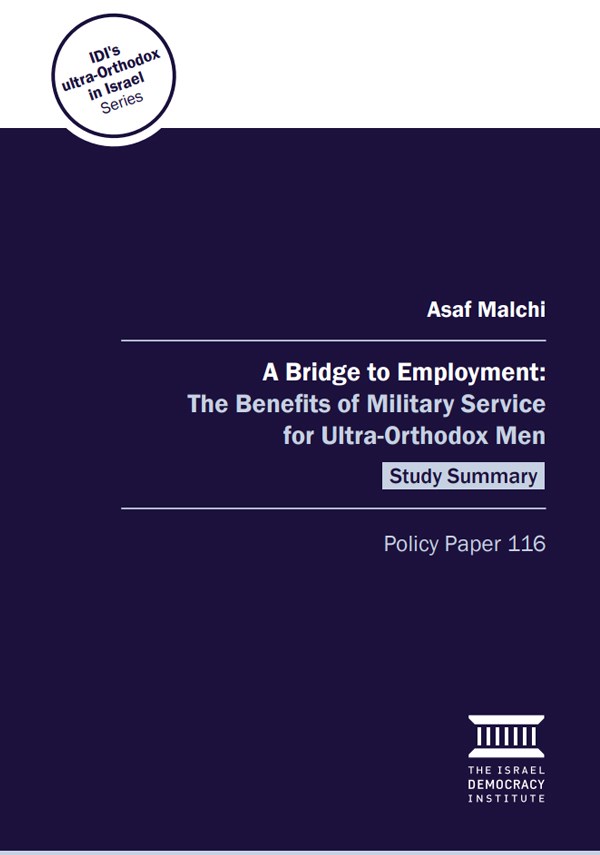

Publications Regarding The Labor Market
Articles

The Link Between Education, Mobility, and High Tech - Eli Hurvitz Conference Day 2
“I want to maintain a strong, independent system of higher education” Yoav Kish, Minister of Education

High-Tech as a Path to Intergenerational Mobility
Written By: Zak Hirsch, Prof. Yotam Margalit, Yechiel Noam, Prof. Karnit Flug
Study on the integration and mobility of individuals from disadvantaged economic backgrounds in the high-tech industry

Israeli Work Life Post Covid
Written By: Daphna Aviram-Nitzan, Yarden Kedar, Roe Kenneth Portal
New survey of Israeli workers reveals changes in levels of satisfaction post COVID pandemic: Most workers in Israel are satisfied with their work-life balance, despite the fact that half of them work more than their official number of hours; around a third report difficulty with functioning in family life
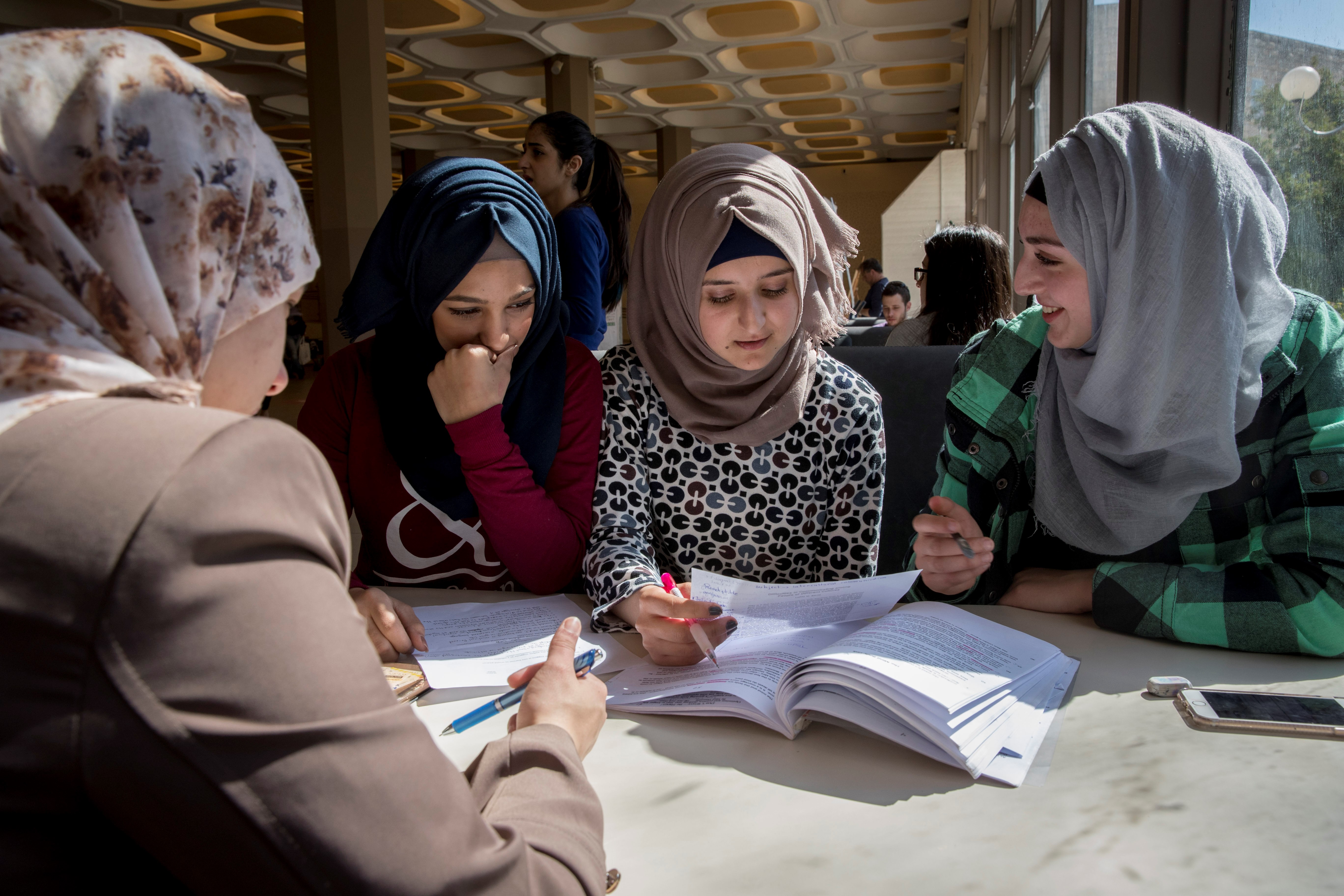
It's Time to Invest Resources in Arab Young Adults
Written By: Dr. Ahmad Badran
Young adults in every society are the face of that society's future, and Arab society in Israel is no different. They face a complex set of daily struggles, in all areas, in their attempt to forge a good future for themselves, their community, and society at large.

More Supply than Demand: Israel’s Labor Market
Written By: Daphna Aviram-Nitzan
Behind the record number of job openings, in an age of full employment and an economy with rapid growth, what steps can the government take to promote the inclusion of workers currently outside the job market and to help businesses?
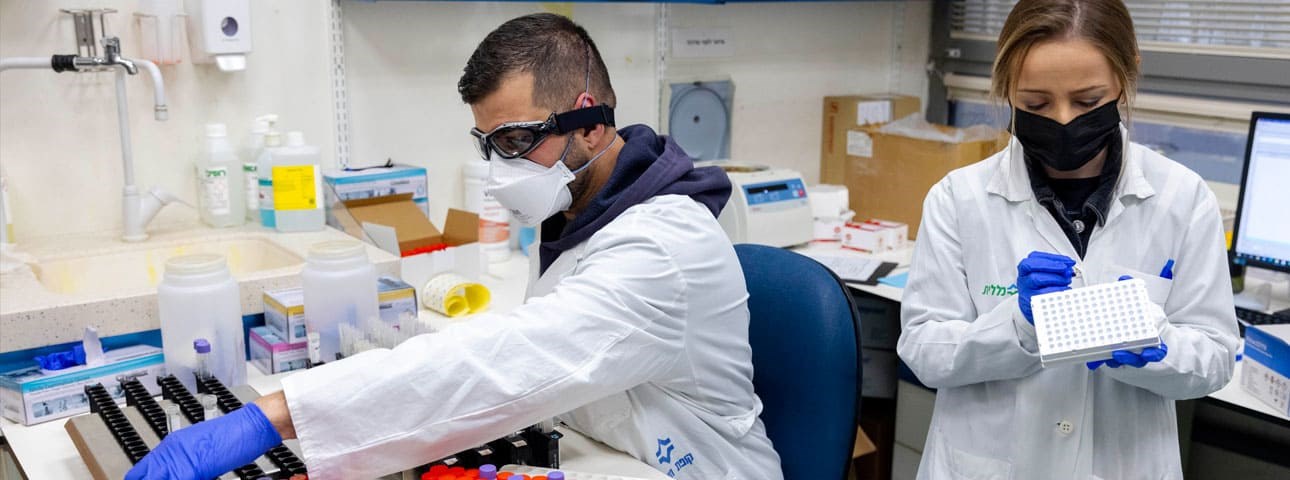
Israel’s Future Labor Market will Further Widen Gaps Between Jews and Arabs and Reduce Gender Gaps
Written By: Prof. Yotam Margalit, Gabriel Gordon, Zak Hirsch
A new study by IDI experts Prof. Yotam Margalit, Gabriel Gordon and Zak Hirsch finds that the Israeli Economy is transitioning towards occupations in which the main tasks require high analytical abilities and to a lesser extent interpersonal abilities. Occupations which mainly require routine-physical abilities are diminishing rapidly

Changes in the New Labor Market: A Tasks and Skills Analysis
Written By: Gabriel Gordon, Zak Hirsch, Prof. Yotam Margalit
The rapid rate of technological development requires an examination of the changes in demand for workers, specifically in terms of the tasks that make up different occupations. This study offers such an examination along with recommendations for action
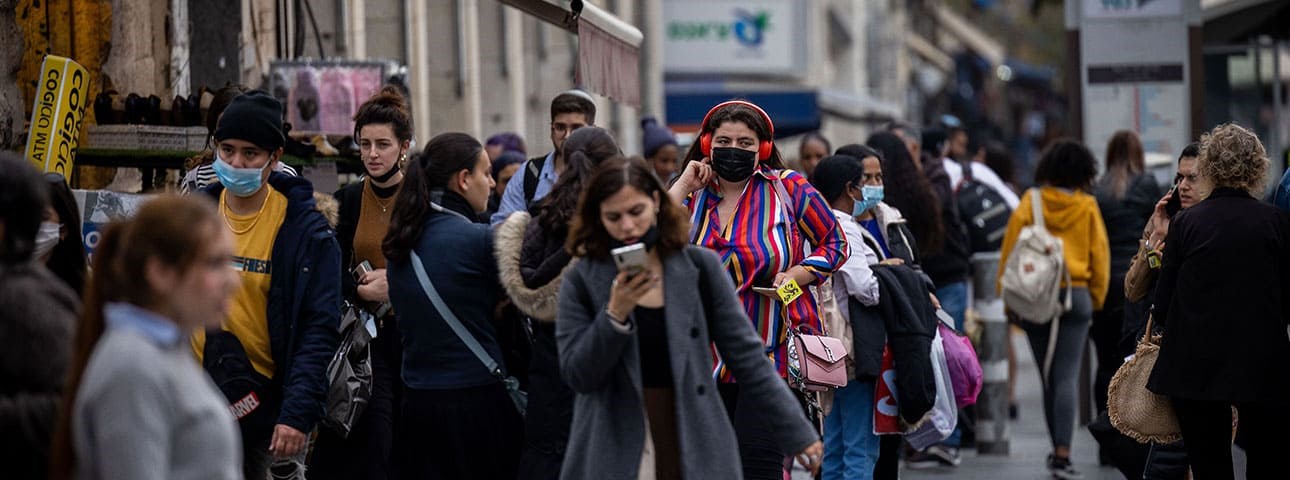
Israelis Out of Work as a Result of COVID-19
Written By: Daphna Aviram-Nitzan, Yarden Kedar
New IDI survey finds that 250,000 Israelis, who are not working, and not receiving unemployment allowances, might soon be forced to rely on supplemental income support.

Employment Incentives for the Haredi Community are a Mix of ‘Carrots’ and ‘Sticks’
Written By: Dr. Gilad Malach
Finance Minister Liberman’s employment incentives for members of the ultra-Orthodox (Haredi) community are a "mix of ‘carrots’ and ‘sticks’ and could encourage members of the Haredi community to join the labor market - however elements of the plan could also expand the existing trend of part-time employment.

Is Israel Also Experiencing a “Great Resignation”?
Written By: Daphna Aviram-Nitzan, Roe Kenneth Portal
The "great resignation" that has swept the US and UK in recent months is one of the symbols of the recovery from the pandemic. Is this trend taking place in Israel too?

The Labor Market must be Fixed for the Economy to Improve
Written By: Daphna Aviram-Nitzan
Addressing the shortage of hi-tech workers isn't enough. Israel must focus on vocational training & improving productivity in all industries to continue economic growth - economist Daphna Aviram Nitzan explains

Lowering the Age of Exemption will Lead Thousands of Haredim into the Labor Force
Written By: Yohanan Plesner , Dr. Gilad Malach
Congratulations to the Bennett government on approving the outline for lowering the age of the students exempted from service in the IDF to 21. This is a vital and necessary step that the Israel Democracy Institute has recommended in recent years. A kind of necessary evil that will lead in the short term to the entry of about 5,000 ultra-Orthodox into the labor market and thousands more in the coming years.

Lowering the Exemption Age for Military Service
Written By: Dr. Gilad Malach
Survey finds lowering the exemption age is not likely to reduce the number of ultra-Orthodox conscripts to the IDF, however it will encourage thousands of ultra-Orthodox men to enter the workforce.

The Labor Market in the Post-COVID Era
Meirav Cohen, Minister of Social Equality: “Employers should be given incentives to choose older workers”

Working from Home: A Survey of Patterns and Attitudes
Written By: Daphna Aviram-Nitzan, Rachel Zaken
One of the very few pieces of good news resulting from the corona crisis is the increase in people working from home (WFH). Unfortunately, workers from lower socioeconomic groups are not benefiting from this change.

Public Attitudes Toward Vocational Training During COVID-19
Written By: Daphna Aviram-Nitzan, Yarden Kedar
An IDI survey examines public opinion on Israelis preferred areas of study and participation when undergoing vocational training during the economic crisis resulting from the coronavirus.

How to Generate Demand for Workers
Written By: Daphna Aviram-Nitzan
A growing number of countries around the world have realized that vocational training and subsidies for the training period can increase the demand for workers. Israel's government should follow this lead, while at the same time accelerating the pace of development of infrastructure projects, to increase the demand for skilled workers.

How COVID-19 Changed Fatherhood
Written By: Dr. Or Anabi
A survey by the Israel Democracy Institute found during the lockdown less than 20% of working men continued working as usual in the workplace. What does this mean for the future of work-life balance among Israeli couples?
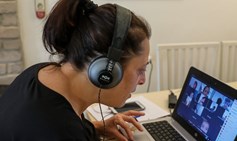
Working from Home: Pre-and Post-Coronavirus
Written By: Daphna Aviram-Nitzan, Rachel Zaken
The coronavirus has made working from home much more prevalent, and has many advantages, including improving efficiency and providing workers with more flexibility. But how do we ensure that it does not increase wage disparities and provide even more advantages to those who are already the higher earners? IDI experts weigh in with recommendations to ensure that all sides benefit

The Crisis Has Hit at the Core of the Labor Market
Written By: Daphna Aviram-Nitzan
The current crisis threatens the heart of the labor market with 400,000 workers between the ages of 35-54 designated as "temporarily absent from work" due to the coronavirus

Human Capital in Israel
Developing human capital in Israel is the key to narrowing the labor productivity gap as a key to reducing income disparities
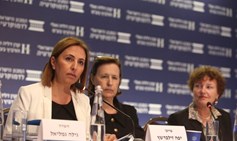
How Do We Adapt Our Labor Agreements to the 21st Century?
Eli Hurvitz Conference on Economy and Society – First Day, Second Session

Adapting to the Future Job Market
Written By: Daphna Aviram-Nitzan, Aharon Aharon, By: Alan Rosenbaum
Reframing the eco-system to prepare for Israel’s job market of the future.

Who Represents Equality – The Attorney General or the Equality of Opportunity Commission?
Written By: Prof. Mordechai Kremnitzer, Dr. Talya Steiner
Should the State always present its position in a unified voice or should state institutions with specific expertise sometimes be allowed to present their views separately? Prof. Mordechai Kremnitzer and Attorney Talya Steiner address this question In an op-ed in Haaretz.
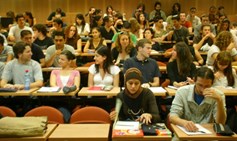
Occupational Mismatch among College-Educated Arabs in Israel
Written By: Sami Miaari, Nabil Khattab, Ola Nabwani
An abstract of an article that examines the extent of the occupational mismatch among college-educated Arabs as compared to the mismatch among college-educated Jews, based on data from surveys conducted from 2000–2010.

Do Not Put an End to Ultra-Orthodox Army Service
Written By: Haim Zicherman
Following the dissolution of the Committee to Advance Equality in Sharing the Burden, committee head MK Yohanan Plesner submitted proposals for alternatives to the Tal Law. In this article, IDI Researcher Attorney Haim Zicherman, who served as the content coordinator of the Plesner Committee, warns that some of those measures were personal recommendations rather than recommendations of the Committee, and may reverse trends of increasing army service by ultra-Orthodox Jews.

In the Aftermath of the Tal Law
Written By: Prof. Yedidia Z. Stern
Will the Israeli Supreme Court's ruling that the Tal Law is unconstitutional really guarantee that the burden of Israel's defense will be shared equally by the country's citizens? IDI's Prof. Yedidia Stern warns that this ruling may actually hinder the integration of the Haredi community into Israeli society rather than promoting it.

Employment Among Israeli Arabs
The percentage of Arabs in the labor market is lower than that of other groups in Israeli society and is among the lowest in the world. Because this discrepancy is based on national-religious schisms, raising the Arab employment rate has important economic, social, and political-national implications. Find out more about this issue in this report, which was submitted by IDI's Arab-Jewish Forum to the Committee for Socio-Economic Change headed by Professor Manuel Trajtenberg.

A New Social-Economic Agenda for Israel
Written By: Momi Dahan
In an op-ed, originally published on the Ynet website, IDI Senior Fellow Dr. Momi Dahan reflects on the wave of social protest of the summer of 2011 and stresses that the response to the protest must be a new social-economic agenda.

Coercive Imposition of Western Culture
Written By:
In this article from Haaretz published on October 3, 2010, Former Education Minister Rabbi Itshak Levi, head of Policy Implementation at IDI, objects to the cultural coercion involved in a mandatory core curriculum, and advocates requiring only the study of Hebrew and Civics of all students in Israel.

COVID-19: Initial Survey Findings on Self-Employed Workers in Israel
Written By: Daphna Aviram-Nitzan, Yarden Kedar
As of the beginning of December 2020, 75% self-employed workers were working, though 45% were working only part-time. Only 29% were working the same number of hours as before the crisis.
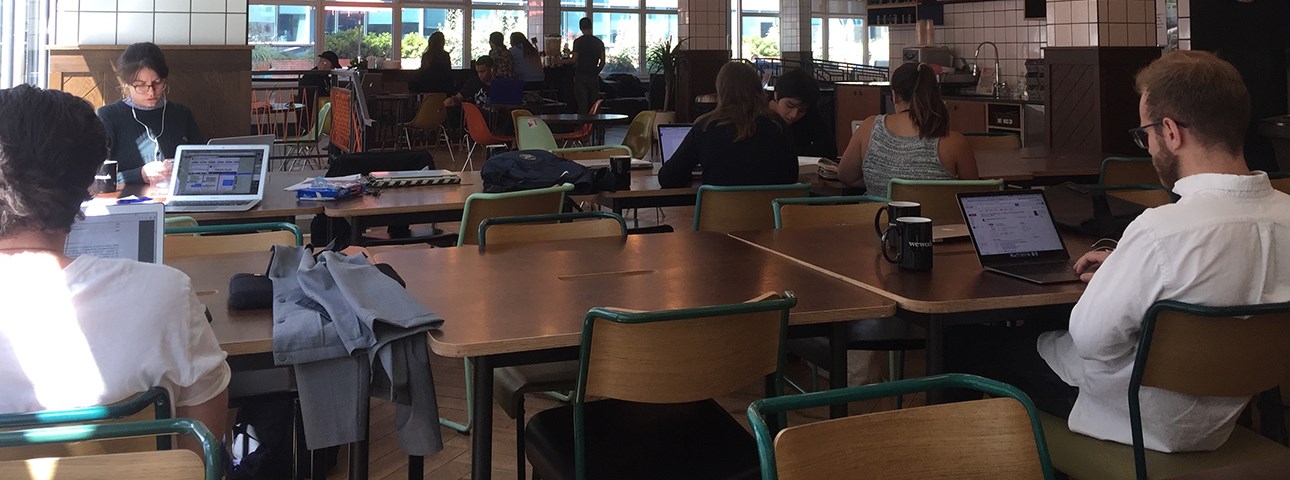
How Hard Is It to Do Business in Israel?
Written By: Daphna Aviram-Nitzan, Prof. Yuval Feldman
"In order to change this trend, we must increase the use of technological tools and behavioral economics."

Active Labor Market Policy Must Become Priority
Written By: Prof. Yotam Margalit
For Israel's economy to grow, significant investment in building a strong and effective infrastructure for occupational training and reemployment is critical.

